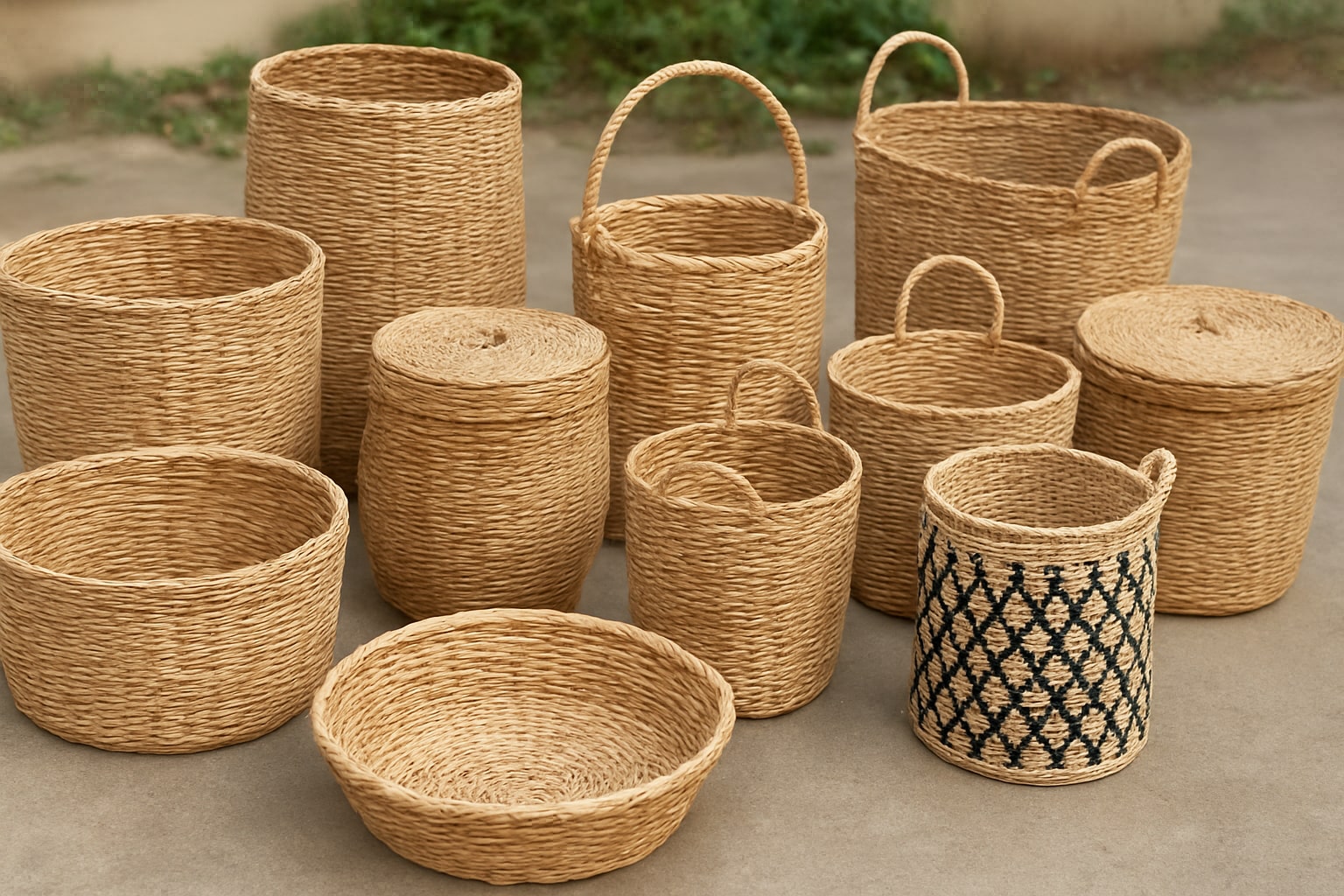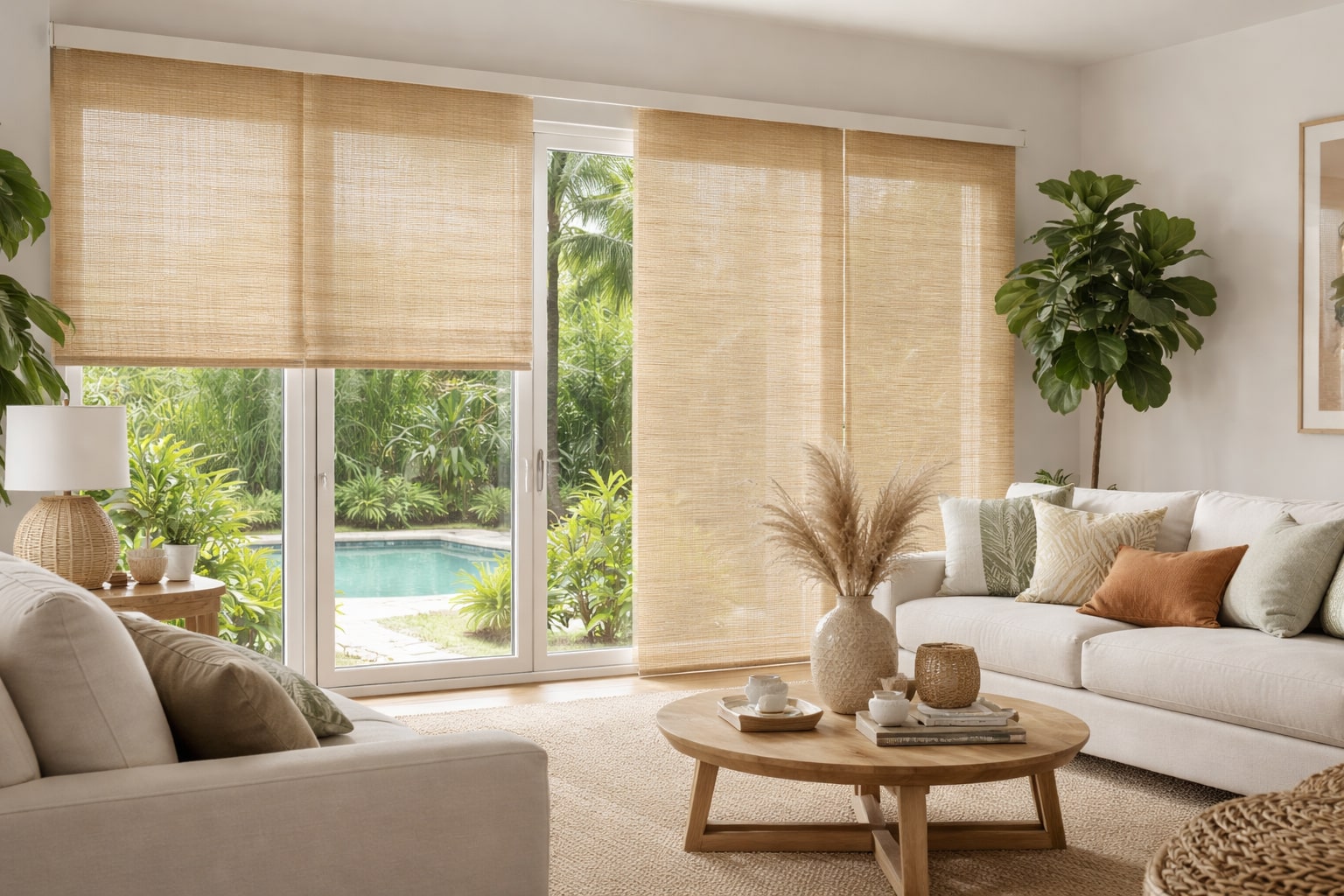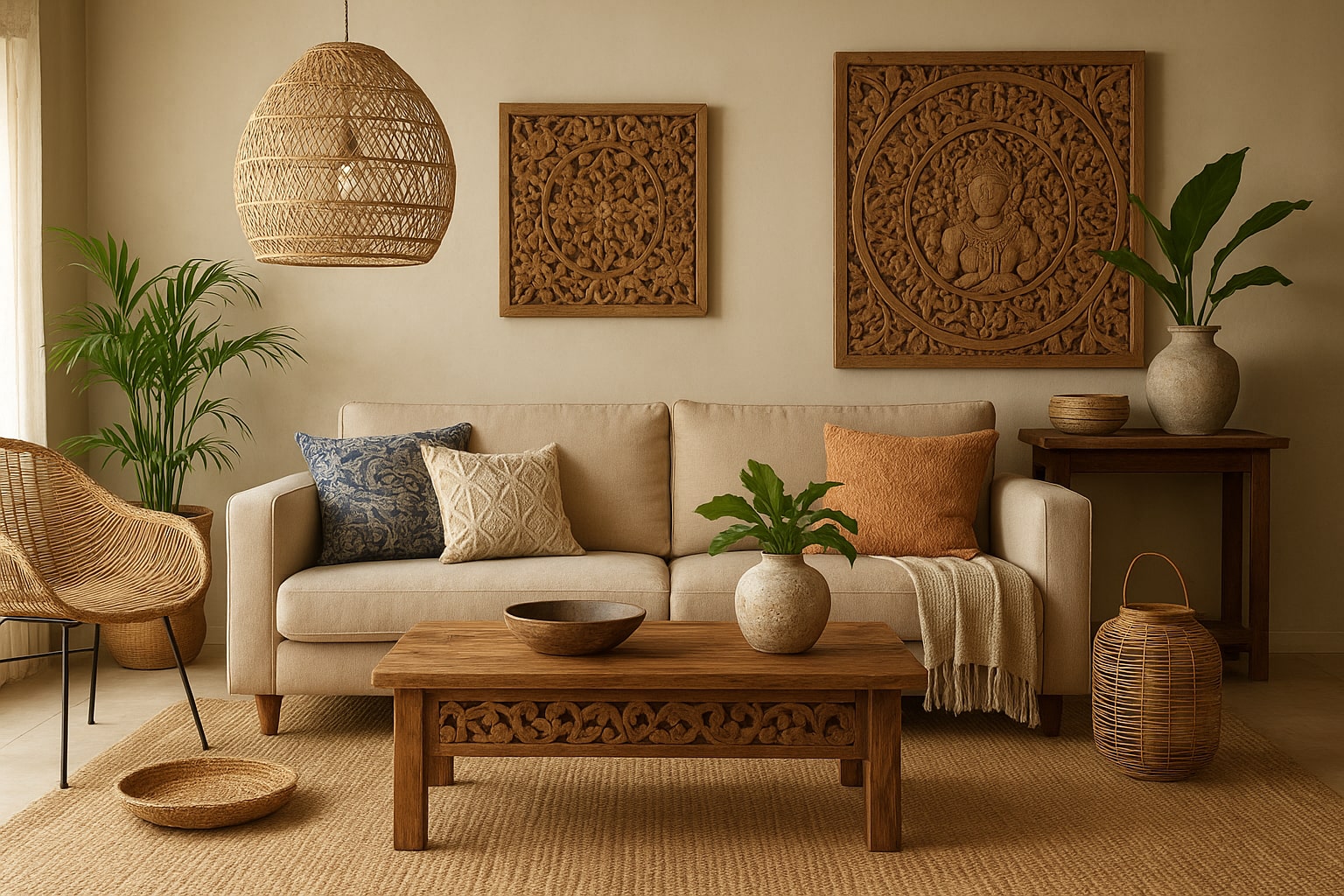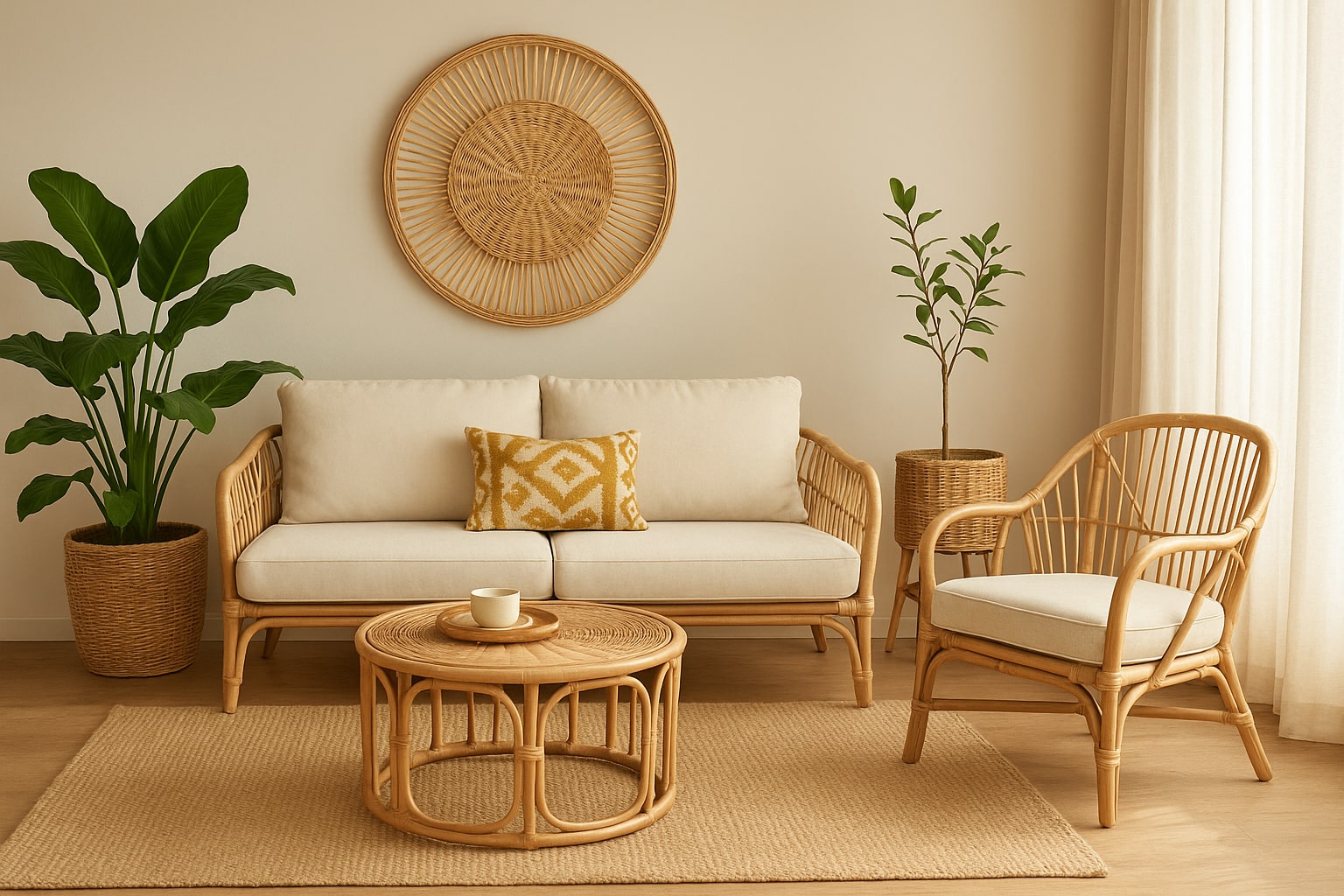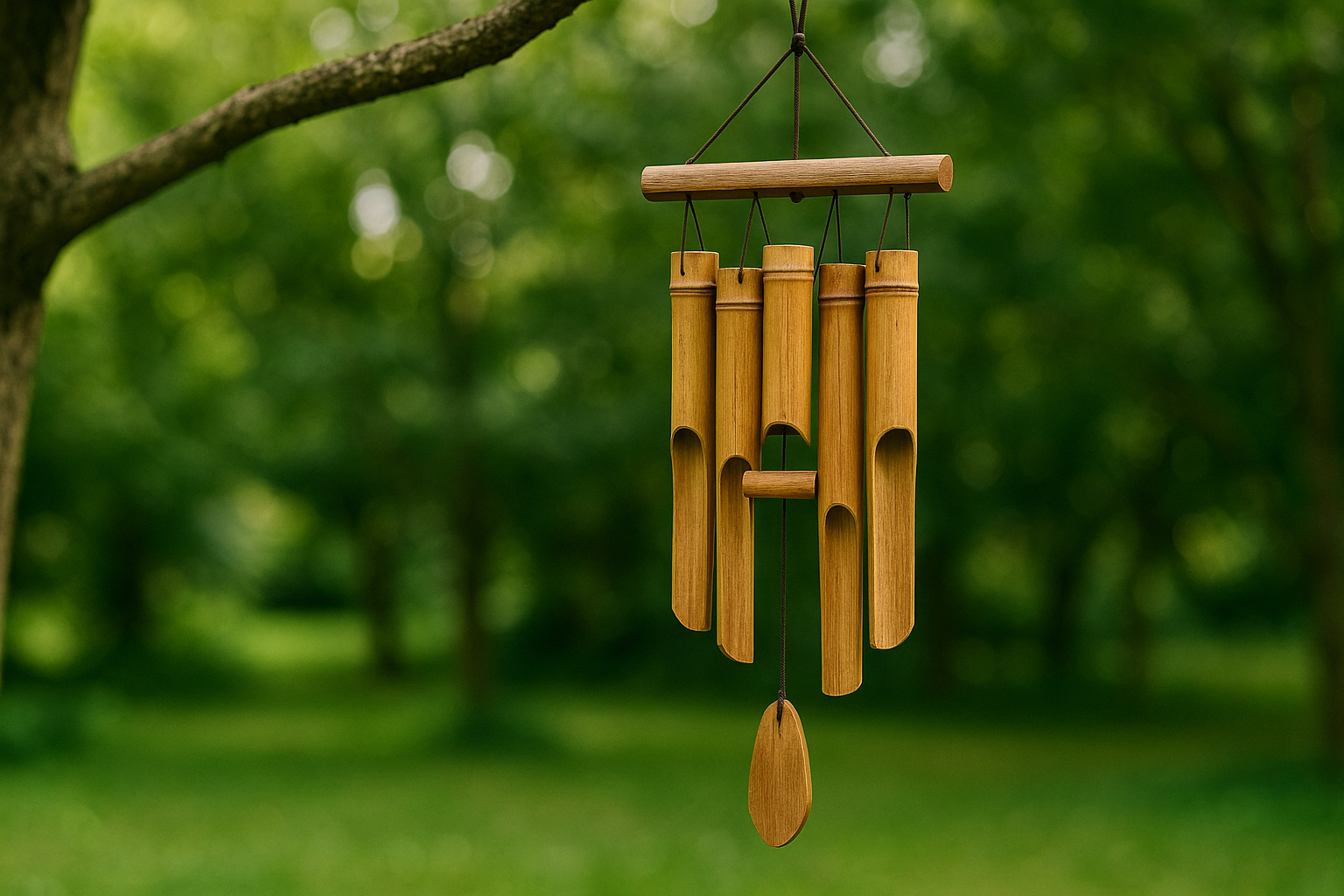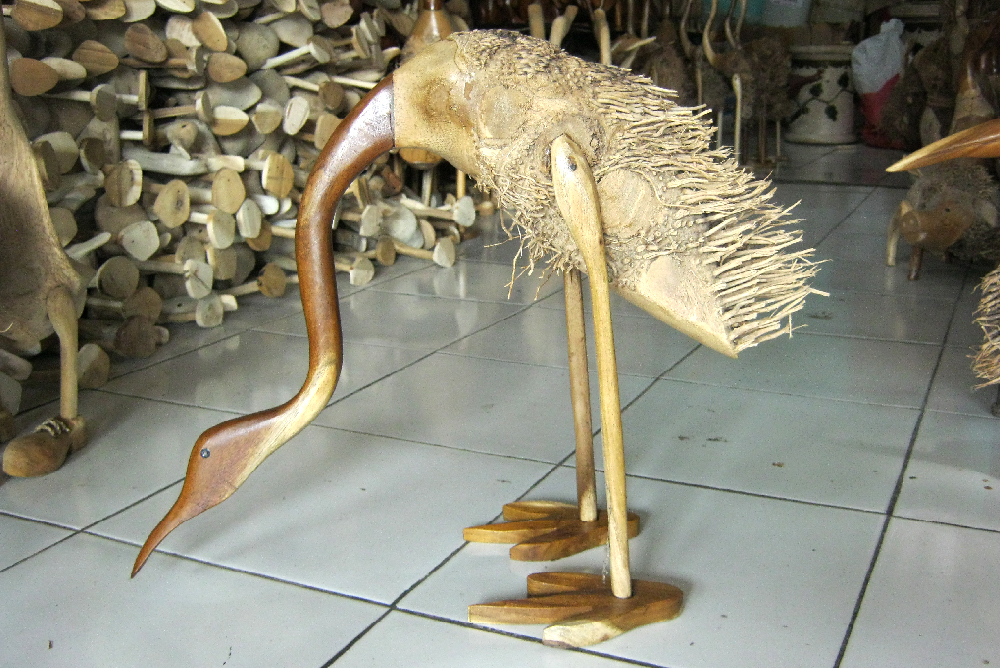When people search for Bali baskets wholesale suppliers, usually they’re not just window shopping. They’re looking for real partners they can trust—suppliers who can deliver consistent quality, good prices, and styles that actually sell in their home market. I’ve been down this road myself, helping clients source products in Indonesia, and let me tell you: Bali is like a treasure chest for handmade goods, but finding the right supplier can feel like digging through the sand for the perfect seashell.
If you’ve ever been on the island and walked through Ubud, Sukawati, or Tegalalang, you know what I mean—baskets everywhere. Round rattan bags hanging from stalls, handwoven laundry baskets stacked high, intricate bamboo storage baskets… it’s like the entire island has basket-making in its DNA. But sourcing them wholesale? That’s a whole different ball game than grabbing a souvenir for yourself.
Why Retailers and Importers Look for Bali Baskets Wholesale Suppliers
I think one of the main reasons Bali has become a hotspot for basket buyers is the mix of tradition and trend. These baskets aren’t just pretty; they’re functional, eco-friendly, and come with a story. In today’s market, that matters. Customers don’t just want storage—they want storage that looks good on Instagram and has some authenticity behind it.
Wholesale buyers—like boutique owners, interior designers, e-commerce sellers, and even hotel decorators—need suppliers who can scale. That means not just a few baskets, but hundreds, sometimes thousands. And not every little roadside shop is ready for that. Some can handle big orders, others can’t. That’s where knowing the right wholesale suppliers makes all the difference.
Types of Bali Baskets That Wholesale Suppliers Offer
This is where it gets fun because the variety is insane. Each region of Bali has its own specialty, and you’ll notice styles differ depending on where the baskets come from.
Rattan Baskets and Bags
These are the superstars. You’ve probably seen them all over Pinterest—the classic round rattan bag with leather straps. Wholesale suppliers usually offer multiple shapes: round, oval, square, and even some funky modern takes with fringes or dyed patterns. They’re great for fashion boutiques.
Bamboo and Ata Grass Baskets
Ata grass (a type of vine found in Bali) is tougher than it looks. When woven tightly, it creates baskets that are durable and naturally resistant to pests. Many wholesalers sell ata trays, coasters, and storage boxes. Bamboo is also huge—lightweight but sturdy, and often used for hampers, market baskets, or decorative storage.
Woven Storage and Homeware
Think laundry hampers, lidded storage baskets, fruit bowls, bread baskets, or picnic carriers. A lot of interior shops abroad buy these in bulk because they fit perfectly into that “natural home” vibe that’s been trending for years now.
Custom Designs
This is where wholesale suppliers in Bali really shine. Many of them will let you tweak designs—change the size, add a fabric lining, alter the handle, or even develop a whole new basket from scratch if you meet their minimum order. I once worked with a boutique in Australia that wanted oversized baskets for beach blankets, and a workshop in Gianyar produced them within weeks. That’s the advantage of working directly with artisans.
What Makes Bali Baskets Special for International Markets
Alright, let’s talk value. Because yes, you can get woven baskets from China, Vietnam, or even Africa. But Bali has a unique selling point: every basket is handmade, often in family workshops, with a heritage that goes back generations. Buyers can actually market these baskets as handcrafted and fair trade, which gives them an edge.
Also, sustainability is a big deal. Most Bali baskets are made from renewable materials—rattan, bamboo, seagrass, or ata grass. No plastic, no machine mass production. According to Indonesia’s Ministry of Trade, handicrafts made from natural fibers account for a huge chunk of the country’s non-oil exports, proving there’s global demand for eco-friendly products. That’s something buyers can use in their branding back home.
How to Find Reliable Bali Baskets Wholesale Suppliers
This part can get tricky because there’s no “one-size-fits-all.” Some wholesalers specialize in exports and are used to shipping containers overseas. Others are smaller family-owned workshops that may not even have a website but can still produce excellent quality. Here are some ways to approach it:
Visit the Craft Villages
If you’re on the island, Ubud, Gianyar, and Tegalalang are the main hubs. Sukawati Art Market is basically basket heaven. Walking through, you’ll see suppliers lined up, and many of them are open to wholesale deals.
Online Sourcing Platforms
Suppliers are getting better at listing themselves online now—many have Instagram or websites showcasing their baskets. Just be cautious: photos can be edited, and quality control is always better done in person.
Questions to Ask Bali Baskets Wholesale Suppliers
I always tell clients: don’t just look at the pretty samples. Ask questions that dig deeper. A few essentials:
- Minimum Order Quantity (MOQ): Some suppliers set 50 pieces, others 200 or more.
- Customization Options: Can they adjust colors, sizes, or designs?
- Lead Time: How long does it take to produce and ship? Usually 4–8 weeks depending on order size.
- Export Experience: Do they already ship internationally, or will you have to manage all logistics?
- Quality Control: Do they check for uniformity, or will baskets vary widely?
One of my clients once ordered 300 baskets from a tiny workshop without checking lead times. It took them nearly 3 months to finish, and by then the season for selling them had passed. Lesson learned: always clarify before placing that deposit.
Price Range for Wholesale Bali Baskets
Pricing depends on the type of basket, the materials, and of course, how much you order. Here’s what I’ve seen in recent years:
- Small rattan bags: around USD $7–$10 per piece wholesale.
- Medium storage baskets: USD $12–$20 depending on complexity.
- Large hampers with lids: USD $25–$40 each.
Keep in mind, these are supplier-side prices. Once you add shipping, customs, and mark-up, retailers abroad often sell them for 2–3x that amount. That’s why buying wholesale in Bali can be so profitable.
Shipping and Exporting Baskets from Bali
Here’s the not-so-glamorous part: shipping woven baskets isn’t always simple. They’re bulky, sometimes fragile, and can take up a lot of space in a container. Some tips:
- Consolidate Shipments: If you’re also buying other home décor, combine them in one container to save costs.
- Compression Packing: Many suppliers know how to nest baskets inside one another to reduce volume.
- Check Import Regulations: Some countries (like Australia) have strict rules about natural materials, so you may need fumigation certificates.
- Choose Reliable Freight Forwarders: Bali has plenty of export agents who specialize in handicrafts.
I once worked with a shop owner in Germany who underestimated shipping costs. She filled half a container with baskets, but because of the lightweight bulk, the cost per unit went way higher than planned. Always factor in shipping when calculating your profit margin.
How to Build Long-Term Relationships with Bali Baskets Wholesale Suppliers
In Bali, relationships matter as much as contracts. Many workshops are family-owned, and trust is built over time. If you treat suppliers fairly, they’ll often prioritize your orders. Here are some things that help:
- Visit Regularly (if possible): Even just once builds trust.
- Pay Deposits on Time: Don’t delay, it signals respect.
- Give Feedback: If something’s off, say it—but politely.
- Stick Around: Don’t just order once and disappear. Long-term buyers often get better prices.
One of my favorite stories was with a supplier in Gianyar. A client of mine consistently placed orders every six months for three years. Eventually, the supplier started sending her little extras—sample baskets of new designs—just to see if she wanted them. That’s the kind of perk you don’t get if you’re just a one-off buyer.
Signs of a Good Bali Baskets Wholesale Supplier
After years of working with different suppliers, you start noticing patterns. A reliable one usually:
- Replies quickly (within a day or two).
- Shares clear photos and videos of products.
- Is upfront about timelines and minimum orders.
- Offers to fix or replace if there’s an issue.
- Has a workshop you can actually visit, not just a “front store.”
Meanwhile, if someone’s vague about pricing or insists on full payment upfront before showing you samples—that’s a red flag.
Trends in Bali Basket Designs for Wholesale Buyers
If you’re buying baskets to resell, you’ll want to know what’s trending. Right now, it’s all about neutral tones, minimal designs, and sustainable branding. Customers love anything with natural beige, off-white, or muted colors.
That said, Bali suppliers are super adaptable. Some are experimenting with colorful patterns, adding batik fabric linings, or even weaving recycled plastic strips into traditional designs for a modern twist. Wholesale buyers who stay ahead of these trends usually stand out in their markets.
Read also: Bamboo Wind Chimes from Bali
Common Challenges When Working with Bali Baskets Wholesale Suppliers
I’d be lying if I said sourcing baskets from Bali is always smooth sailing. It’s not. There are challenges, and knowing them beforehand saves you a lot of stress.
The first big one? Consistency. Since baskets are handmade, no two are exactly the same. A round rattan bag might come out slightly oval, or two storage baskets in the same set might vary by a centimeter. For some buyers, that’s part of the charm—handmade means unique. But if you’re selling to picky markets like the U.S. or Japan, you’ll want tighter quality control. That’s why working with a supplier who has an in-house QC team is a game-changer.
Another issue is timing. You can’t rush handcrafted work. If you push too hard, quality drops. Some suppliers will promise three weeks, then delay another two because artisans are overloaded. That’s just the reality of working with handmade goods. When I plan orders for clients, I always pad in extra weeks—better to under-promise and over-deliver than the other way around.
And then there’s communication. Bali suppliers are generally warm and accommodating, but English may not be perfect. Sometimes a “yes” means “I don’t want to disappoint you,” not an actual confirmation. To avoid confusion, I always recommend buyers send photos, sketches, or even physical samples to clarify exactly what they want.
The Role of Export Agents in Bali Basket Wholesale
Here’s something a lot of first-time buyers don’t realize: most of the smoothest exports from Bali happen thanks to export agents. These are companies or individuals who specialize in logistics, paperwork, and shipping. Many also offer product inspections before items are packed.
If you’re planning to order from multiple basket suppliers—or mix baskets with furniture, textiles, and other homewares—an export agent will consolidate everything into one shipment. Without them, you’d have to coordinate with each supplier separately, which is honestly a nightmare.
Some agents even act like middlemen, introducing you to suppliers they already trust. Yes, they take a fee, but for most new buyers, it’s worth it for peace of mind. I once worked with a Canadian store owner who decided to skip using an agent and handle shipping herself. Long story short, the baskets got stuck at customs because the fumigation certificate wasn’t filed properly. It ended up costing her more than if she had hired an export agent from the start.
Why Bali Baskets Are a Safe Bet for Retailers
Despite the hurdles, Bali baskets remain one of the most solid wholesale investments. They tick off so many boxes: trendy, eco-friendly, practical, and story-driven. Customers see them as artisanal yet accessible. And unlike some fast-fashion or cheap home décor trends that fade quickly, natural woven baskets have been going strong for decades.
What’s cool is that baskets also work across markets. A fashion boutique in Paris might stock rattan handbags, while a home goods shop in New York sells seagrass hampers, and a resort in the Maldives buys custom beach baskets for their villas. The versatility means demand won’t die out anytime soon.
So, if you’re serious about building a product line that lasts, finding the right Bali baskets wholesale suppliers is one of those decisions that pays off long-term.


